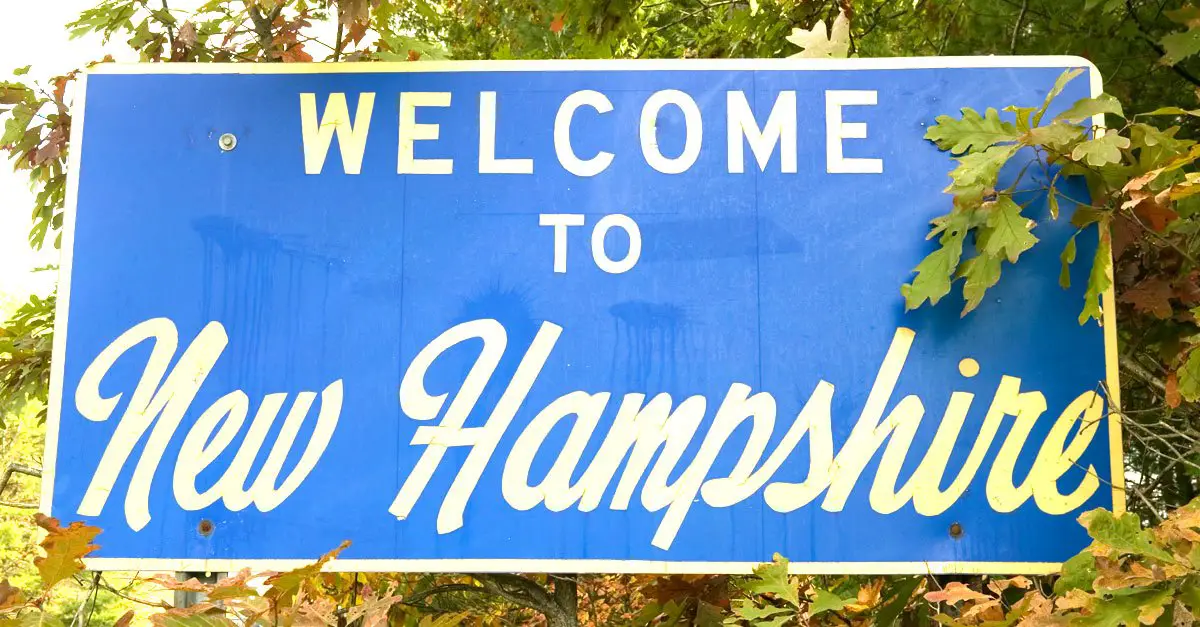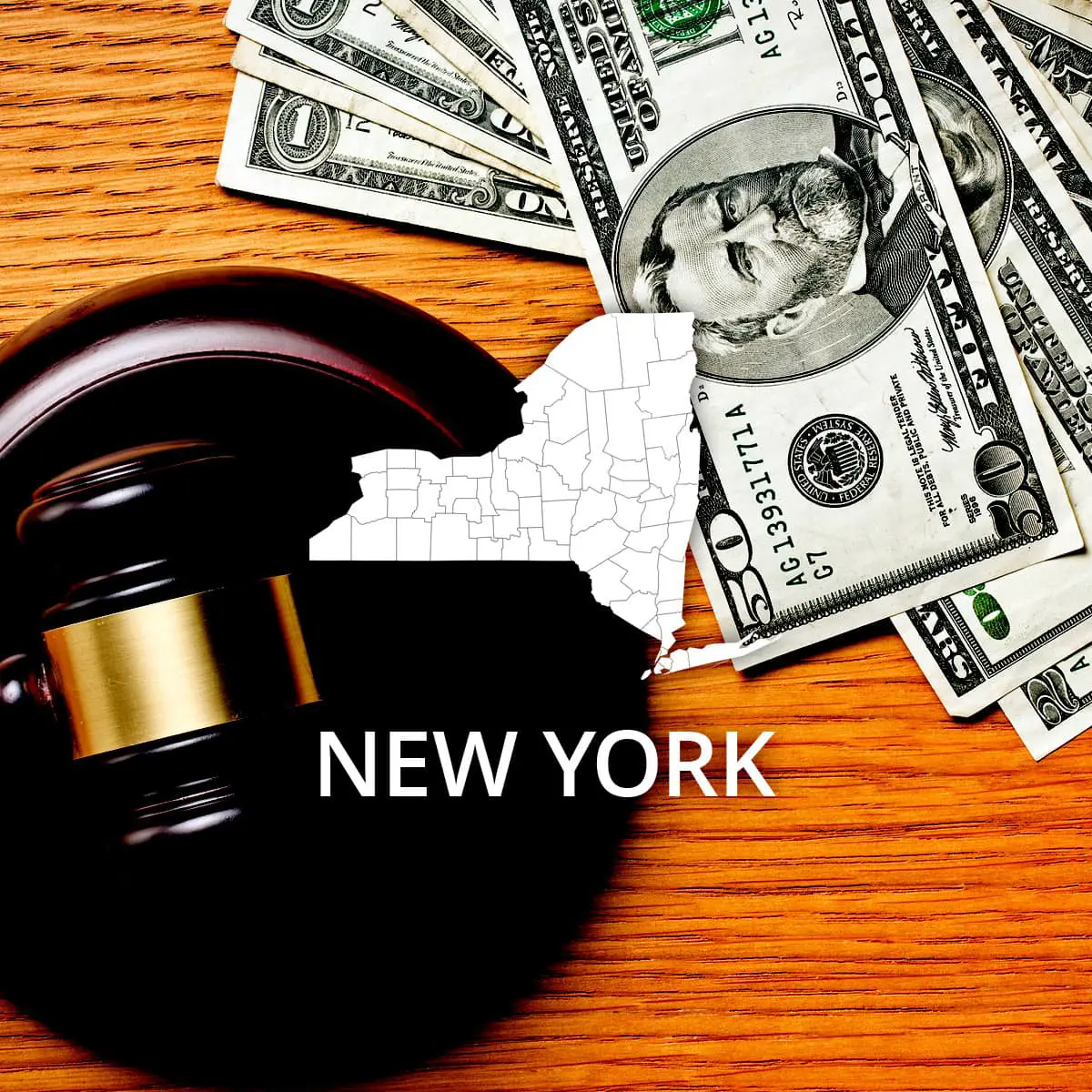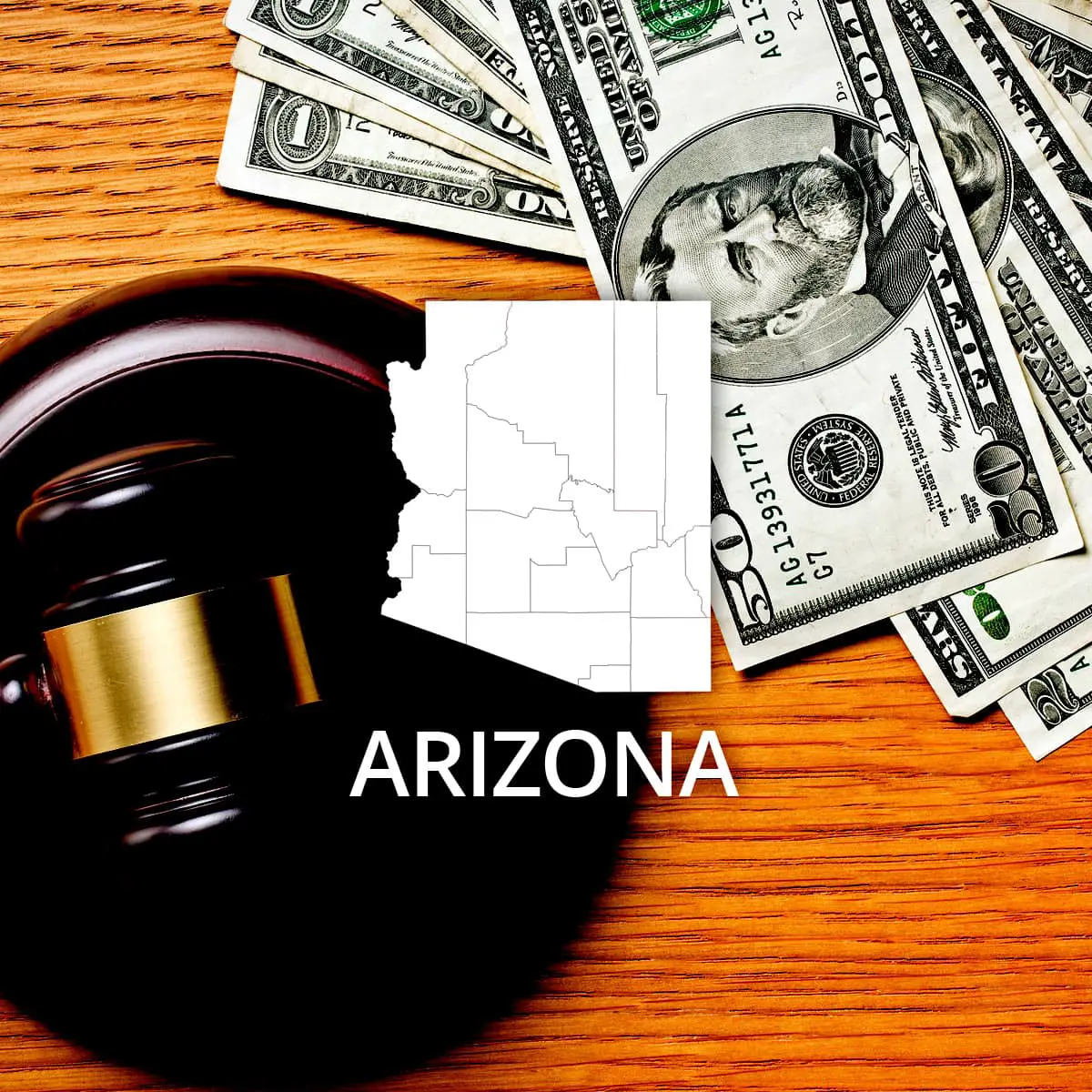Estimate Whether You Will Qualify For Chapter 7 Bankruptcy In New Hampshire
As stated above, you often have to qualify to file Chapter 7 bankruptcy. Qualification is based on US means testing. The means testing is based on the household income and size of the household for New Hampshire.
Bankruptcy Means Test In New Hampshire
The bankruptcy means test in New Hampshire often changes every 6 months. To help, we built the following bankruptcy means test calculator to help you estimate qualification, understand the cost and compare bankruptcy alternatives.
New Hampshire Chapter 7 Bankruptcy Income Limits
| # of People |
|---|
| $174,738 |
What Is Chapter 7 Bankruptcy In New Hampshire
Chapter 7 bankruptcy orders the liquidation of the debtors assets and properties. Under this type, debts are not settled by filing a repayment plan or making payments in installments over several months or years. Instead, the debtor transfers all non-exempt assets to the bankruptcy trustee for immediate sale. Debtors must note that filing for Chapter 7 bankruptcy may cost the applicant most of their properties. As such, Chapter 7 bankruptcy may not be the most suitable for debtors in some cases. Additionally, this type of bankruptcy is not available to corporations or partnerships.
All interested debtors may file for Chapter 7 bankruptcy regardless of the debt amount. However, determining eligibility requires the applicant to pass the means test, which assesses the debtors income and compares it with New Hampshires median income. As of 2019, New Hampshires median household income was $86,900.
Debtors with incomes lower than the states current median may qualify easier than others. However, applicants with higher income may also qualify depending on other factors, including the specifics of the bankruptcy case. Each applicant must pay $245 to file the case, a miscellaneous administrative fee of $75, and a $15 trustee surcharge.
A Quick Guide To Filing For Bankruptcy In New Hampshire
Legal Rights Advocates, PLLC is a law firm that helps clients file for bankruptcy in New Hampshire. Our team of attorneys, over the years, has helped countless clients understand bankruptcy better and file after looking at other options and choosing the one that suits them the best. If you are interested in learning more about how to file for bankruptcy, including Chapter 7, in New Hampshire, call us at 254-7841 for immediate assistance.
Filing for Chapter 7 Bankruptcy in New Hampshire? Read our guide to help you. Before we start though, a few words of caution:
- Filing for bankruptcy is never an easy decision. You will likely mull over it and need to analyze other ways out before you zero-in on choosing bankruptcy as the way out.
- Bankruptcy filing, even if it is Chapter 7 or in the state of New Hampshire, does consist of detailed paperwork. You need to be thorough and accurate in your paperwork because it has a bearing on whether or not your filing will be accepted.
- If you are not aware of the law on bankruptcy, you may be likely to miss out on critical details in a bankruptcy such as exemptions allowed to you, or the debts that may not be allowed a discharge in this type of bankruptcy.
Read Also: Can You Rent An Apartment With A Bankruptcy
What Property Can I Keep After Bankruptcy
The first thing many people wonder when they file for bankruptcy is what property they may be able to keep and what they will lose. Each case is different and can be complicated as it moves forward. Joseph M. Annutto is a bankruptcy lawyer who can review your individual situation and determine what property you will be able to keep if you file for bankruptcy.
New Hampshire’s Homestead Exemption Allows You To Protect Up To $120000 Of Equity In Your Home And Twice That Amount If You Are A Married Couple Filing Jointly

By Cara O’Neill, Attorney
Most people want to know whether they can keep valuable property before filing for bankruptcyespecially a home. If you qualify to use the New Hampshire homestead exemption, you can protect some or all of the equity in your house. In this article, we explain:
- how much the New Hampshire homestead exemption will cover, and
- how to apply it in your bankruptcy case.
For more bankruptcy information, read How to File Bankruptcy in New Hampshire. Not only will you find answers, but it includes helpful checklists and a link to an interactive bankruptcy quiz. Or, try the start-to-finish bankruptcy guide, What You Need to Know to File for Bankruptcy.
Don’t Miss: How To File For Bankruptcy In Texas Without A Lawyer
S In A New Hampshire Bankruptcy
We all know that seeing the forest helps us recognize the trees, so it’s probably a good time to consider the significant steps you’ll take during your bankruptcy journey. Think of this checklist as a roadmap of sorts, but you can also use it to track your progress. The good news? You’ve already made headway on the first two items!
Are You Eligible For Chapter 7 Bankruptcy In New Hampshire Take The Bankruptcy Means Test To Find Out
TheChapter 7 bankruptcy means test can determine if a New Hampshire petitioners income level and expenses are eligible to file for a Chapter 7 bankruptcy. The formula is designed to prevent individuals from Chapter 7 bankruptcy if they make enough money to pay down unsecured debts. If an individual does not qualify for Chapter 7 as determined by the Means Test of New Hampshire, he or she may be able to file for a Chapter 13 bankruptcy to repay a fraction of the accrued debt.
Taking the Chapter 7 means test does not necessarily entail that an individual has to be impoverished to be able to file for a Chapter 7 bankruptcy. An individual who qualifies for a Chapter 7 bankruptcy in New Hampshire may still have a high income if he or she has high car and/or mortgage payments, high taxes, and/or other expenses.
Read Also: How Much Does It Cost To File Bankruptcy In Wisconsin
Claiming The New Hampshire Bankruptcy Homestead Exemption
In New Hampshire, the homestead exemption is automatic you don’t have to file a homestead declaration with the recorder’s office to claim the homestead exemption in bankruptcy. Instead, when filing for bankruptcy, you’ll list your homestead exemption on Schedule C: The Property You Claim as Exempt when completing your bankruptcy forms. You can find out about other requirements you’ll need to meet in Your Home in Chapter 7 or Your Home in Chapter 13.
Filing Chapter 7 Bankruptcy In New Hampshire
Pre-filing essentials
- In the six months prior to filing for bankruptcy, you will need to complete credit counseling from an agency that is approved by the U.S. Trustee within New Hampshire.
- Apart from credit counseling, you will also need to take a debtor education course which is part of the process as well.
The Process of Filing
Why You May Need a Professionals Help
Don’t Miss: Do Bankruptcies Clear Evictions
Will Bankruptcy Affect My Credit Bankruptcy Nh
Bankruptcy can be complicated and the impact it can have on an individuals or a familys credit can vary widely. Regardless of what type or the details of your situation, bankruptcy will have affect your credit. The bankruptcy attorneys at the Law Office of Joseph M. Annutto can help determine how bankruptcy will affect your credit and we will work to minimize the negative effects.
If you are filing for bankruptcy, your credit is already in trouble. How much depends on the amount of debt you have and the amount of money you makeyour debt to income ratio. If you have pretty good credit and file for bankruptcy, your credit score will take a deep dip. However, if you have a high debt to income ratio, a large amount of debt and a small amount of income, your credit score will dip slightly. Any bankruptcy filing will remain on your credit report for up to ten years.
Dealing With Your Car
A lot of folks hold off on filing bankruptcy in New Hampshire because they are worried about how it will affect their car without realizing that a Chapter 7 bankruptcy actually gives them more options than they otherwise have. If your car is paid off, then as long as its current reasonable value is less than $4,000 you can keep it. If you are still paying on a car loan when your Chapter 7 bankruptcy in New Hampshire is filed, it is up to you how to deal with it. If the payment works for your budget and the loan balance does not exceed the value of the car by an unreasonable amount, you can keep everything the same by entering into a reaffirmation agreement. On the other hand, if you are struggling with the monthly payment or the car is in bad shape, filing bankruptcy in New Hampshire gives you the opportunity to surrender it and discharge the balance owing on the loan. If you like the car, but the loan balance includes negative equity from a prior trade-in, making it unreasonable to keep the loan, you can redeem the vehicle by paying the creditor the current value of your car in a lump sum after filing Chapter 7 in New Hampshire.
Also Check: Can I Be Fired For Filing Bankruptcy
Continuation Of Health Insurance Coverage Upon Divorce
State Continuation is not insurance State Continuation is a right of N.H. residents, under N.H. law, to temporarily continue their FULLY INSURED group health and dental benefit plan for themselves and their dependents after the date the insurance would have otherwise ended due to a change in eligibility.. . . read more
The Collaborative Law Alliance of New Hampshire announces a solution to the current crisis in the family division of the New Hampshire Court System. . . read more
Visit christophergarner.com for all Blog articles
Resources & Links |
Understand The Costs Of Filing Bankruptcy In New Hampshire

When you file for bankruptcy, you need to understand the cost and affordability of bankruptcy. The costs primarily consist of the filing fee and the attorney fee . Firstly, most attorneys offer payment plans. Some also offer $0 down payment options. The cost of the attorney can be variable based on such factors like your location and the difficulty of the case.
We built this New Hampshire attorney fee calculator to help you estimate costs based on your specific zip code.
If you cannot afford a payment plan, you may also look at the legal aid options in your state and also how the filing fee waiver works.
Legal Aid In New Hampshire
There are certain situations where you could get help through legal aid. Please note that each legal aid may have criteria set for who they will help. Here are legal aid option in New Hampshire.
Filing Fee Waiver in New Hampshire
Theres a filing fee to file bankruptcy. You can check the New Hampshire filing fee waiver requirements to see whether you may be eligible for the filing fee waiver.
Also Check: Buying A New Car After Bankruptcy
Contact Our Bankruptcy Attorneys Today At 603
Larger law firms handle a huge volume of cases and often cannot give a particular case the special attention it needs. In those firms, the smaller cases are often passed on to junior associates who may not be adequately experienced or sufficiently qualified. At Normand Higham, we handle your case personally you arent handed over to an assistant, and you never become just another case number. We maintain high professional standards and provide affordable, quality legal services to bring your case or legal concern to its best possible resolution. Our goal is to help individuals, families and small businesses to get a fresh start in life during difficult economic times. Contact us today and schedule a free consultation.
Bankruptcy Lawyer In Nashua New Hampshire
Attorney Joseph M. Annutto is a bankruptcy lawyer in Nashua New Hampshire. Attorney Annutto and his staff serves all of New Hampshire and can help navigate your bankruptcy filing and help you understand the bankruptcy laws that may affect your case.
Bankruptcy is a legal process and can be complicated depending on the specific circumstances involved. Because it is a legal process, you need dedicated and trusted legal counsel by you side.
Also Check: Getting Personal Loans After Bankruptcy
Understanding How A Chapter 7 Means Test Works
The Chapter 7 means test was designed to limit the use of a Chapter 7 bankruptcy to individuals who can no longer pay off their debts. The Chapter 7 bankruptcy works by subtracting certain monthly expenses from the individuals present monthly income. The current income will be determined by the persons last six months income prior to filing for bankruptcy. This will determine the persons available income.
If a person has a high amount of available income, the more likely it is that he or she will not be able to use a Chapter 7 bankruptcy to pay off the accrued debt. Instead, the individual will be expected to use the available funds to repay creditors.
Another important factor is that you only need to take a means test if the bankruptcy filer has predominantly consumer debts in New Hampshire, not business debts.
What Is Chapter 11 Bankruptcy In New Hampshire
Chapter 11 bankruptcy requires debtors to settle debts by creating repayment plans. Also called reorganization or restructuring bankruptcy, this type of bankruptcy spreads the debtor’s payment over a period agreed by creditors and the court. Chapter 11 bankruptcy allows businesses to repay debts in smaller installments and over longer periods, without suspending operations. Under this type, debtors are not required to sell off their assets and properties.
The Chapter 11 process can be very complicated because the court must approve the repayment plan, which should also be agreeable to the creditors. It may also take years before all unsecured debts are discharged and the case is concluded. Since there is no compulsory timeframe, completion may vary by the value and type of debt, the total number of creditors, as well as the creditor and courts assent to the suggested repayment plan. Where the debtors plan is unfavorable, the creditor may reject some parts or propose a different plan.
Generally, Chapter 11 allows debtors to reduce obligations on secured debt such as mortgage or car payments. Persons may also renegotiate bad leases and reorganize applicable tax debts. Debtors filing for Chapter 11 bankruptcy must provide the court with the following information:
- A list of all the debtors liabilities and assets
- Statements detailing expenditure and income
- All executory contracts and unexpired leases
Read Also: Filing For Bankruptcy Chapter 7 In Texas
Do I Qualify For Bankruptcy
To qualify for Chapter 7 bankruptcy, you must show that either:
- your income is below New Hampshires median income for your family size, or
- your income and expenses, calculated together, leave you unable to pay your debts. This is determined under a complex formula called the bankruptcy means test.
If you don’t qualify for Chapter 7, you may still qualify to file under Chapter 13. To qualify for chapter 13, your debt must be under the limit set by the bankruptcy code and you must be current on your tax filings for the last four years.
Us Trustee Program Extends Telephonic Or Video Section 341 Meetings
The U.S. Trustee Program has extended the requirement that section 341 meetings be conducted by telephone or video appearance to all cases filed during the period of the Presidents Proclamation on Declaring a National Emergency Concerning the Novel Coronavirus Disease Outbreak issued March 13, 2020, and ending on the date that is 60 days after such declaration terminates. However, the U.S. Trustee may approve a request by a trustee in a particular case to continue the section 341 meeting to an in-person meeting in a manner that complies with local public health guidance, if the U.S. Trustee determines that an in-person examination of the debtor is required to ensure the completeness of the meeting or the protection of estate property. This policy may be revised at the discretion of the Director of the United States Trustee Program.
You May Like: Wisconsin Bankrupcy Court
How Bankruptcy Treats Unsecured Debt
Generally, Chapter 7 bankruptcy allows you to discharge most of your unsecured debt. However, secured debt is treated differently and is rarely eliminated in a Chapter 7 case.
In a Chapter 13 bankruptcy, the bankruptcy court may reduce or restructure your unsecured debt. Your mortgage payments will not be included in the plan and you will continue to make those payments separately, but the trustee may negotiate a payment agreement with the lender if you are behind on your payments.
In Chapter 13, unsecured creditors are usually paid with the disposable income that is left over after you have repaid your secured creditors. Any unsecured debt not paid under the plan is discharged when the plan has finished.
Homestead Exemptions Available In A New Hampshire Bankruptcy

New Hampshire lets filers use either the federal exemption system or New Hampshire’s state exemption system, so you’ll have two homestead amounts to choose between. However, you can’t mix exemptions from both lists, so you’ll want to select the system that will protect your most important assets.
To help you make an informed choice, we’ve listed both exemption amounts below. We’ve also included links to more complete federal and state exemption lists so you’ll have an easier time deciding which set will work best for you.
If you’re married, keep in mind that spouses can double some exemption amounts, but not all. Find out about other filing considerations for spouses.
|
Federal Homestead Exemption |
Don’t Miss: Filing For Bankruptcy In Texas Without A Lawyer